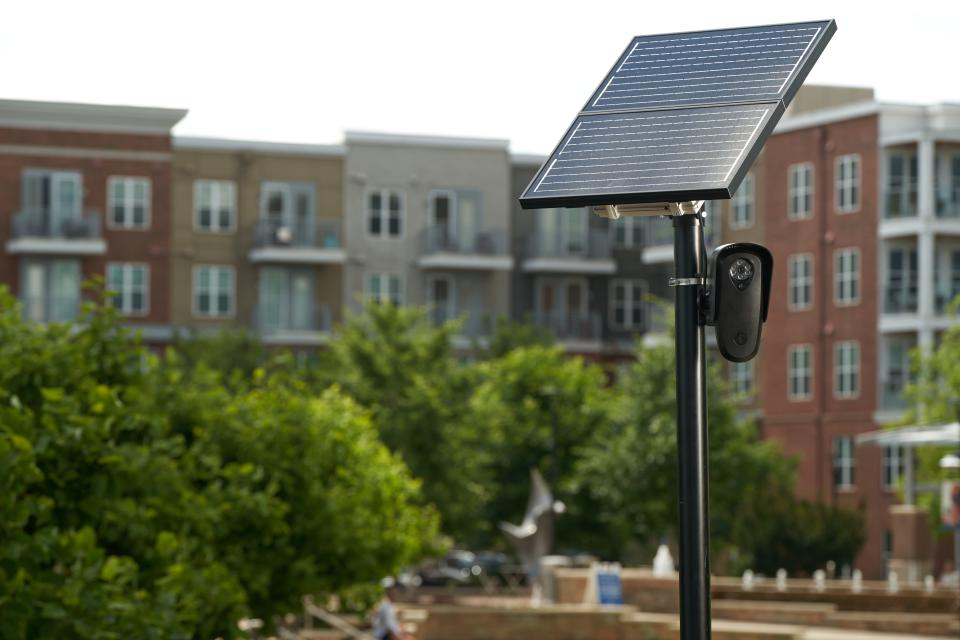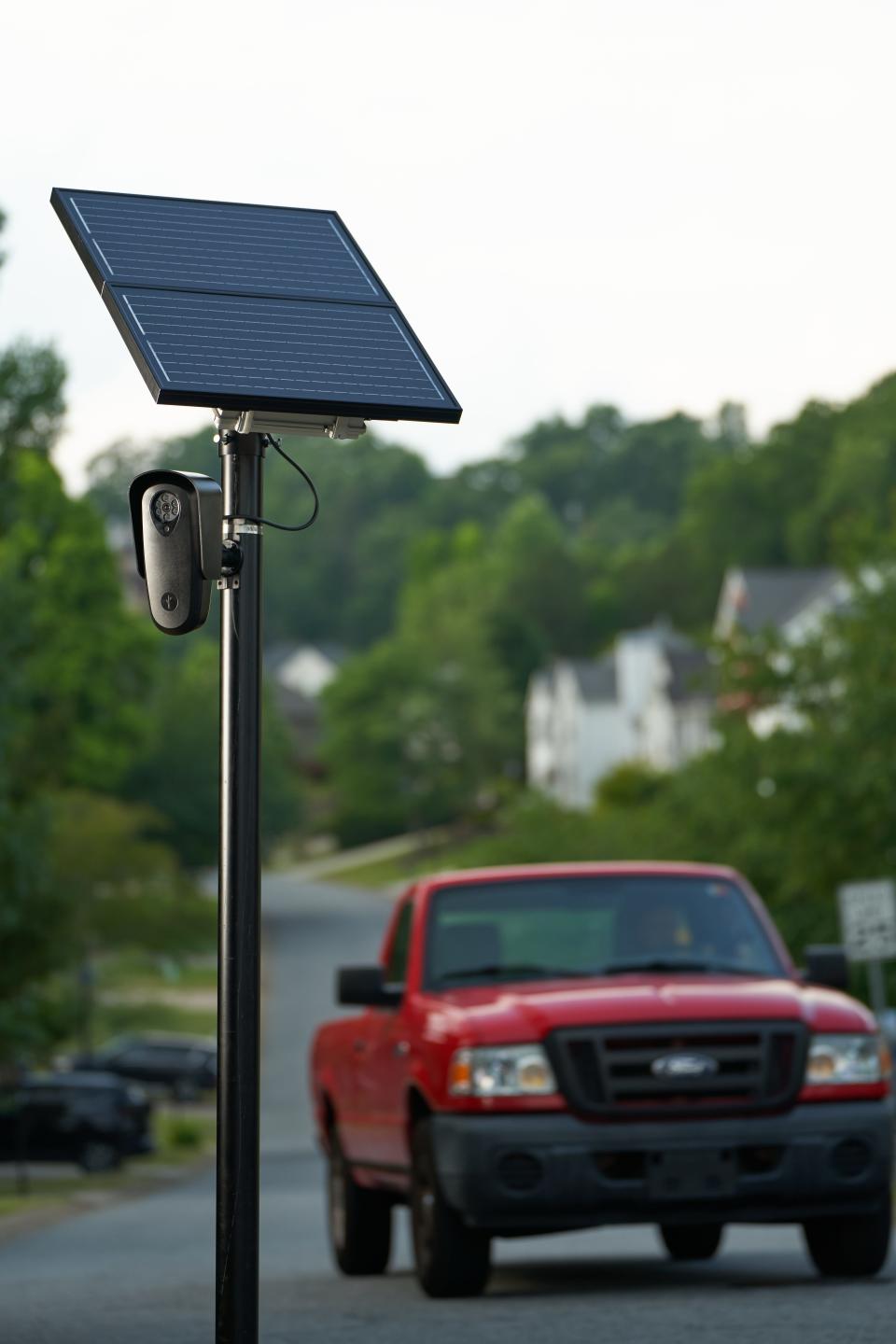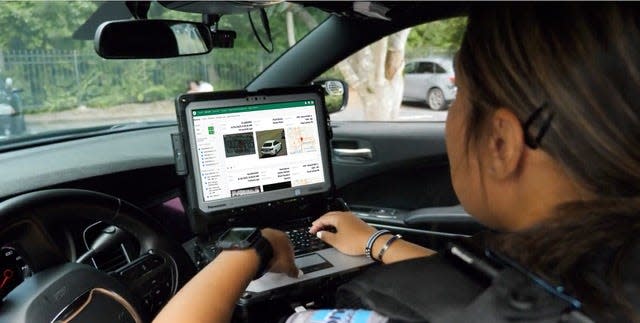Madison to become first city in South Dakota to install license plate readers. What does that mean?
License plate readers are coming to Madison, South Dakota, becoming the first city in the state to install the cameras.
The cameras, built and maintained by Flock Safety, will be placed in various high-trafficked areas across the city by mid-summer.
Flock Safety, based out of Atlanta, Georgia, bills itself as “the first public safety operating system that powers 1,500 cities to capture objective evidence.”
More: A perfect firestorm: This wildfire season could be one of South Dakota's worst
That objective evidence includes photos of the entire backside of a vehicle: from the license plate, including state, to the make and model. The data is then stored on an encrypted cloud that only law enforcement can search through. The scans are destroyed after 30 days from their initial capture.

Officials with the Madison Police Department and Flock say the license plate readers are the next step in creating safe communities by proactively fighting crime. But critics say the readers could be abused.
What are automated license plate readers?
The tech, commonly referred to as ALPR, uses cameras to either take photos or take an infrared scan of the back plate of a traveling car.
For Flock, they take photos of the plate which are uploaded to a database accessible by law enforcement. The agency can then use the information to cross check with a national database of stolen cars, recent Amber Alerts and Silver Alerts.
“It is not taking the picture of the occupants of the vehicle. It's not tied to any sort of personally identifiable information so we're not connected to DMV records,” said Josh Thomas, Vice President of Communication for Flock. “We don't know who the registered owner is. It's literally taking a picture of the back of the car, getting that data to police so they can go investigate.”

The purpose, Thomas said, is to proactively fight non-violent crime.
“Most crimes committed with the car – people drive in, commit a crime and drive out,” he said. “Let’s get the license plate and the vehicle details over to the officers so they can do something about it.”
How is Madison planning on using ALPR?
Justin Meyer, the Madison police chief, said his department approached Flock a few months ago about their product.
Meyer said his department investigated 54 burglaries in Madison last year, but they have a clearance rate of 50%.
“When we started researching some of these, we were finding that clearance rates are going into the 70%-80%," he said. "If we can increase that in Madison and do our job better than that’s what we need to do."
The photos will be deleted after 30 days, unless law enforcement needs to use a specific photo in connection to a crime, Meyer said.
If approved for the cameras by the city, Meyer said eight to 10 cameras would be installed across town. Two of those cameras will be mobile, while the rest will be attached to either fixed light poles or 14-foot poles, which Flock supplies.
They’re still figuring out where in town though.
“We’re looking at where our high traffic areas, where our high crime areas [are] and deploying them so we get the largest return on investment,” Meyer said.
The cameras will be leased from Flock Safety for $2,500 per camera, per year, Meyer explained. The cost will come out of the department’s budget.
Why are people concerned about ALPR?
With the use of this kind of technology, though, critics have pointed out its effectiveness.
In a 2021 study, two nonprofits looked at the effectiveness of ALPRs over seven years in Piedmont, California, and found that less than 0.3% of license plate reader “hits” led to an investigative lead related to an associated crime.
Additionally a 2020 Brennan Center for Justice white paper from the Washington D.C. law and policy institute, found 37% of ALPR “hits” from a fixed reader were misreads. Nearly 35% of mobile ALPRs had misread rates as well.
More: Crime stopper or 'nosy neighbor'? Suburban license plate cameras are watching you
Rachel Levison-Waldman, who helped author the white paper, said misreads come from a number of factors: from the ALPR mistaking the state a license plate is from to misreading the number and letter combination.
“That can have pretty significant consequences as well. Because you're just looking at potentially information about the wrong person or intervening in that moment,” she said. “There have been cases where somebody has been held at gunpoint by the police because they have been wrongly identified as someone else.”
Thomas, however, says Flock's data is “30% more accurate” than competitors, because their tech takes a picture, which is then verified by a law enforcement officer.
Law enforcement agencies are also required by Flock to write their own policy about engagement. Madison PD has already drafted its policy, which includes manual verification of the license plate photo. There are also transparency efforts such as an online portal on the Madison PD page to show how many scans have been taken in the last 30 days.

The department also won’t solely rely on the cameras.
“We’re not going to be sitting in front of a computer trying to look at every plate that went through an intersection,” Meyer said.
But some are still a little hesitant about the new cameras coming to town.
“I’m worried about what’s going to happen with this information because sometimes police officers misbehave,” said Chuck Clement, who came to a town hall the Madison Police Department held last Wednesday.
“The information that’s available, it can be misused and people should at least ask questions," he said.
Follow Annie Todd on Twitter @AnnieTodd96. Reach out to her with tips, questions and other community news at atodd@argusleader.com or give her a call at 605-215-3757.
This article originally appeared on Sioux Falls Argus Leader: What to know about license plate readers in South Dakota

